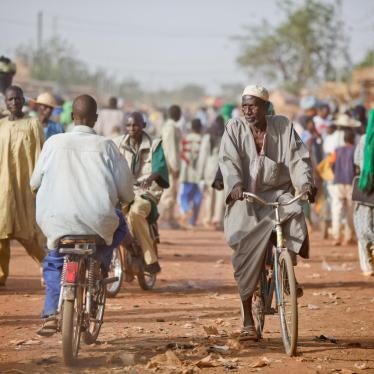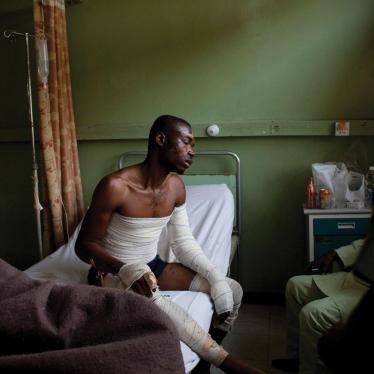Three Kenyans now sit in Ugandan custody, charged with terrorism for their alleged role in the twin bomb blasts that killed scores of World Cup soccer fans in Kampala a few weeks ago. It is unclear what relationship - if any - these three might have had with al-Shabaab, the militant Somali group that claimed responsibility for the attacks.
The impact of the bombings continues to reverberate throughout East Africa. As investigators continue to sift through the evidence and talk of more arrests, international policymakers and governments in the region should work just as urgently to revise their failed Somalia strategies.
Al-Shabaab claims it struck Kampala as retribution for attacks on civilians by the African Union peacekeeping force, led by Ugandan soldiers who are propping up Somalia's internationally backed transitional government. It's true that the AU mission, known as AMISOM, has launched indiscriminate mortar attacks in the Somali capital, Mogadishu, with heavy civilian casualties.
But al-Shabaab has also deliberately drawn fire from the peacekeepers into populated neighborhoods to bolster antagonism toward the African forces. It has threatened and killed dozens - if not hundreds - of Somali civilians it deemed to be collaborators of the country's weak transitional government. It has also targeted journalists and civil society activists.
The sad truth, which we and our colleagues have been documenting for more than three years, is that arbitrary and deadly violence is routinely meted out to civilians in Mogadishu by all sides to the conflict. Yet the suffering of millions of Somali civilians has been largely ignored while foreign policymakers have panicked over the rise of Somali piracy in the Gulf of Aden. That plays right into al-Shabaab's narrative that the US and its allies care only for their own strategic interests.
For nearly two decades the question of how to restore stability to Somalia has bedeviled regional powers and US administrations. No one has the solution, but there are some useful lessons for the Obama administration about what not to do now.
First, do not throw money and training at abusive and unaccountable military forces in Somalia, whether individual warlords, militias or even transitional governments, and work rigorously to end violations by forces backed by the United States and the U.N. The weapons and salaries provided and troops trained by the United States and European Union have a persistent habit of slipping out of control.
The transitional government's human rights record is poor: it too has fired indiscriminately at civilians and, like al-Shabaab, has used child soldiers in allied militias. In such an environment, no one should be sending more mortars to Mogadishu: they will very likely end up killing civilians.
Second, do not allow regional allies, such as Uganda, Kenya and Ethiopia, to believe that a terrorist attack translates into a blank check to violate human rights under the pretext of fighting terror. For several years, we and our colleagues have investigated serious abuses committed by Kenyan, Ethiopian and Ugandan security forces, often under the guise of "combating terrorism." In Uganda, for example, we have documented long-term incommunicado detention, torture and, in some cases, deaths of alleged treason and terrorism suspects at the hands of the government's Joint Anti-Terrorism Task Force. Across East Africa, terrorism has at times been used to ensnare political opponents and even refugees seeking protection.
There is a real risk that the Kampala attacks could spawn a host of hidden or unintended victims of abusive Ugandan, Kenyan and Ethiopian counterterrorism operations. Washington, which strongly condemned the Kampala bombings, should publicly condemn domestic human rights abuses in these countries and push for consistent accountability so that the threat of terrorism is not manipulated to entrench authoritarian rule.
Third, do not fail to address the persistent and unaddressed abuses against civilians in Somalia, as well as the refugees and domestic Muslim communities in Uganda, Ethiopia and Kenya. It risks radicalizing people in support of al-Shabaab. Handing al-Shabaab a propaganda tool by looking the other way when vulnerable Muslims are ill-treated could have long-term disastrous consequences for the region and undermine any efforts to address Somalia's instability.
Somalia's neighbors face a test of leadership. The Obama administration should stress that whatever and wherever the threat or provocation, an alliance with the US means first rejecting torture, attacks on civilians, and impunity for abuses that have continued far too long.
Maria Burnett is Uganda researcher and Leslie Lefkow is Horn of Africa researcher at Human Rights Watch.






